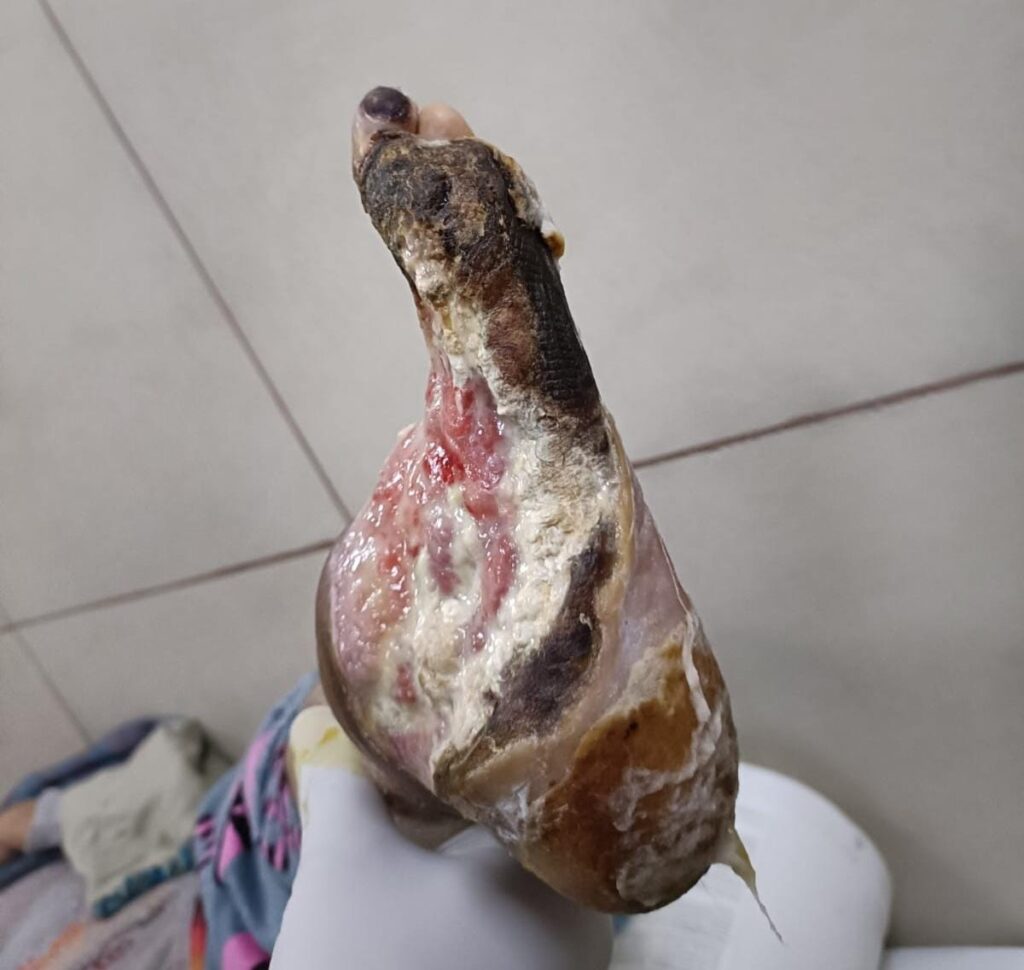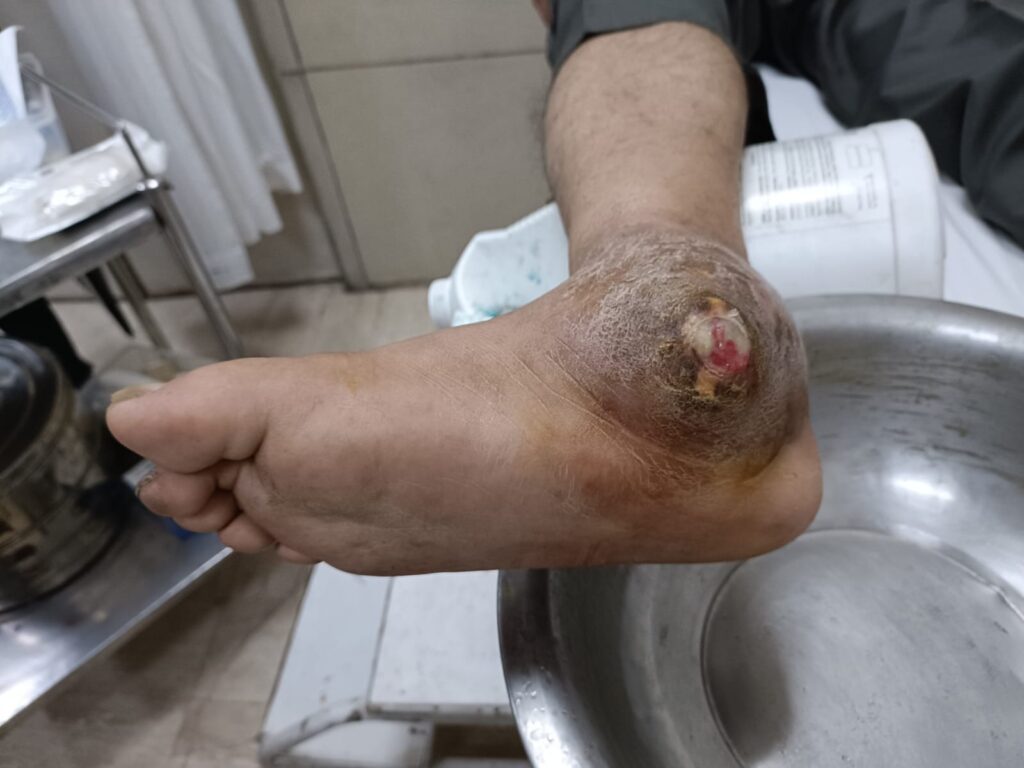Services
Diabetic Foot

Diabetic Foot
These are patients who have long term diabetes and over a period of time there nerves and vessels of foot are destroyed leading to various foot related problems like ulcer, corns, carbuncle, boils, abscess, gangrene etc. and if not consulted timely they may result in amputations and life threatening situations.
Mortality is high and healed ulcers often recur. The pathogenesis of foot ulceration is complex, clinical presentation variable, and management requires early expert assessment. Interventions should be directed at infection, peripheral ischaemia and abnormal pressure loading caused by peripheral neuropathy and limited joint mobility. Despite treatment, ulcers readily become chronic wounds.
Principles of management
The first principle is to treat any infection; the second is to establish whether any associated decrease in blood supply is amenable to revascularisation; the third is to decrease pressure on ulcer; and the fourth is to improve the condition of the wound or ulcer by wound-bed preparation, topical applications, and removal of callus.
Off-loading
Customised orthotic devices and plaster casts are used to off-load the wound while allowing the patient to remain partly active. These devices can greatly lower abnormal foot pressures.
Prevention
Primary prevention is the aim of diabetes management, but secondary prevention is the goal of good foot-ulcer care. The recurrence rate is high and ulcer healing should be followed by secondary prevention by education, using appropriate footwear, routine foot care Surgery to correct deformities and abnormalities of posture, gait, and load bearing should also be utilized as preventive measure.
Endocrine surgical sciences runs separate diabetic foot clinics which provide a comprehensive care to patients of diabetic foot including diabetes management, foot care, surgical treatment of infections and foot reconstruction and revascularization procedures.

